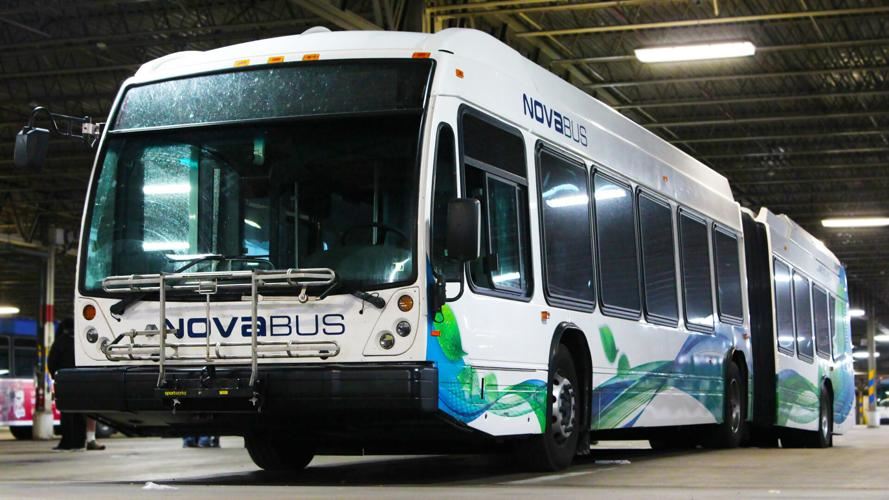
Right now, Racine has the most electric buses of any fleet in the state with nine. But Belle City won’t be in the lead for long.
Madison will use $41.6 million in federal funding to buy 27 electric buses for the coming first phase of the city’s bus rapid transit system, pushing the city’s goal of an all-electric BRT (Bus Rapid Transit system) closer to reality.
Madison Mayor Satya Rhodes-Conway and nine City Council members on Tuesday introduced a resolution to authorize a contract with New Flyer of Winnipeg, Manitoba, to purchase the initial 27 zero-emission buses and approving the next steps for the 15.5-mile first phase of the BRT project that will run roughly from East Towne Mall to West Towne Mall. A future route will run from north to south.
The resolution calls for a base order of 27 60-foot all-electric articulated buses, which is more than half of the 46 vehicles needed to operate the upcoming BRT system. It also includes an option to add 19 more vehicles if more funding becomes available through the federal Infrastructure and Jobs Act and Small Starts grant programs.
The contract with New Flyer includes options of either 14 additional diesel BRT buses, at a cost of $14 million, or the 19 additional electric BRT buses at a cost of $28.9 million. Either option must be selected no later than Dec. 31.
“I am grateful to President (Joe) Biden and Secretary (Pete) Buttigieg for helping Madison move quickly to implement a fully electric BRT system,” Rhodes-Conway said in a statement. “I also want to thank Alds. Furman and Foster for being early champions of this resolution, and all alders who signed onto this important investment for the future of our transportation network, the future of our dynamic economy and the sustainability of our environment for generations to come.”
BRT, a high-frequency, high-capacity, limited-stop service that would run on city streets and dedicated lanes with special stations, is also the backbone of the coming Metro Transit network redesign, a new vision of the entire bus system.
With each of Metro’s current buses using approximately 5,658 gallons of diesel each year, electric buses are expected to conserve nearly a quarter-million gallons of fuel yearly, according to the mayor’s statement. With no engines, transmissions, intakes or exhaust systems, electric vehicles can also save up to $125,000 in maintenance costs per vehicle during the lifetime of the bus.
Converting Metro’s fleet to electric is one of the most important things the city can do to address climate change. Electric buses take cars off the street and release zero emissions back into the atmosphere, with each one saving an estimated 135 metric tons of greenhouse gas annually, according to the mayor’s office.
https://journaltimes.com/news/state-and-regional/govt-and-politics/racine-has-the-most-electric-buses-in-the-state-but-it-wont-for-long/article_1a71eda6-868e-5fb4-bce1-eaca1a8bf9ef.html